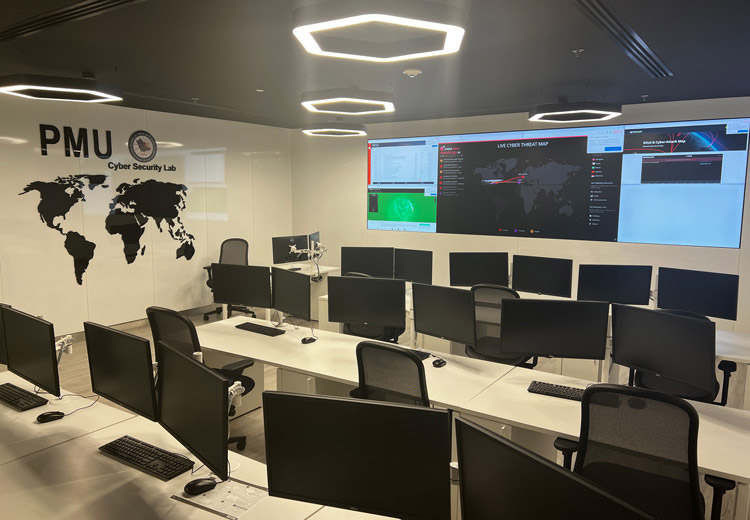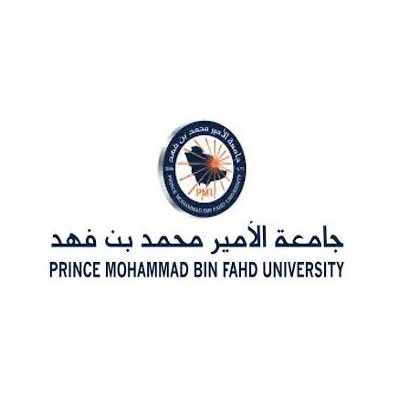Advancing cybersecurity in the new age of automated threats

Sponsored by

Sponsored by

Prince Mohammad Bin Fahd University’s Cybersecurity Center is engineering high-tech responses to counter cyberthreats while preparing students for a career in the field
With cyberthreats becoming increasingly dangerous and sophisticated, cybersecurity is growing more complex. The threats that individuals, organisations and countries face are evolving as more of our everyday activities migrate online.
Defence needs to be proactive, and that is exactly the stance adopted by the Cybersecurity Center at Prince Mohammad Bin Fahd University (PMU). Headed by Nazeeruddin Mohammad, associate professor in the College of Computer Science and Engineering, the centre’s research interests include malware detection, the blockchain and designing mathematical models of complex systems to stress test them against evolving threats.
“We used machine learning-based techniques for detecting malicious activities and anomalies in the system,” says Mohammad. The Cybersecurity Center is located close to critical infrastructure and industries and develops tools to keep the country’s systems secure.
“Protection has multiple angles,” says Mohammad. “One potential angle is to mathematically model critical infrastructure along with its security defences, then apply possible attacks on this model. This could help to analyse the system to evaluate the effectiveness of the defences and deduce insights to reduce the risk and improve the security posture.”
Mohammad acknowledges that we can never make the risk from cyberthreats zero. The systems are too complex, and artificial intelligence (AI) creates a dynamic threat landscape. However, by leveraging the power of data and applying machine learning solutions, we can build resilience in our systems.
“We are trying to introduce our students to automation tools and machine learning so that they can leverage these to orchestrate repetitive tasks and focus on more critical tasks,” says Mohammad. “Machine learning is good at finding anomalies. If you train the model properly, it’ll work. It all depends on how it has been trained and the quality of data we have given it as input,” he says.
PMU is serious about equipping its students with the industry-relevant skills they need to pursue a career in cybersecurity. The centre’s ethical hacking course offers an environment in which students can workshop their hacking skills and learn about the systems they will have to defend in future. The course has been successful and has brought the centre a lot of attention outside the circle of cybersecurity professionals.
PMU wants to train its students for the real world, and that requires expertise in autonomous systems, mathematics and harnessing AI to ring-fence critical systems.
The centre has collaborations with several cybersecurity firms to give students a grounding in state-of-the-art technologies, along with a curriculum informed by what is happening in the real world. “We want to use the expertise of industrial professionals to train our students,” says Mohammad, noting that society needs new automated technologies sooner rather than later to build more resilient systems.
Find out more about Prince Mohammad Bin Fahd University.